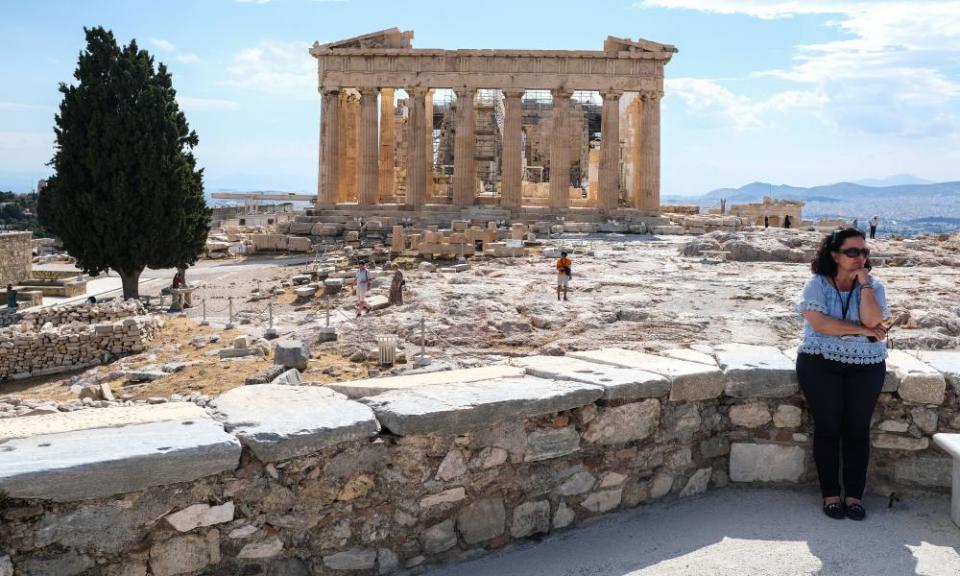Covid-19: Greece quarantines all passengers from Qatar flight

Greece has been forced to confront the risks of restarting international tourism after authorities announced that 12 out of 91 passengers onboard a Qatar Airlines flight to Athens had tested positive for coronavirus.
The civil protection ministry responded by suspending air links to and from the Arab state until 15 June. All 91 travellers on the flight were immediately placed in quarantine.
“We knew there would be such cases. We’ve seen what can happen this summer,” said Prof Nikolaos Sipsas, an expert in infectious diseases. He told ANT1 TV that the incident highlighted the degree to which opening up to tourism was a calculated risk.
“The safest [thing] would be not to open up to tourism but that would mean huge economic destruction,” said Sipsas, who sits on the specialist committee advising the Greek government on management of the pandemic. “The first thing we have to do is divide countries of origin into safe and unsafe [categories]. That creates certain diplomatic pressure, but for us the first priority is public health.”
The passengers who tested positive will have remain isolated in a government-designated hotel for 14 days. At least two were reported to be members of Australia’s large ethnic Greek community, many of whom traditionally return to Greece during the summer months.

Non-infected passengers will be kept in quarantine for seven days, after which they will undergo a second Covid-19 test, according to health protocols. If then found negative they will be released from quarantine.
Greece said on Monday it would cover the costs of accommodating foreign visitors who tested positive for the virus. Last week Cyprus, whose economy is also reliant on tourism, announced similar plans. “Our aim is to ensure the maximum safety for residents and visitors,” said Stelios Petsas, a government spokesman.
Greece has managed to sustain a low reproduction or “R” rate of infections since beginning to reverse lockdown restrictions on 4 May. Strict enforcement of measures early on has resulted in Greece recording fewer than 3,000 cases and a death toll of 179, one of the lowest in Europe.
But the pandemic has wrought havoc on the eurozone’s most fragile economy just as it was starting to show signs of recovery after almost a decade mired in crisis.
Athens’ centre-right administration has declared that all international flights can resume from 15 June. Announcing its plans to “welcome the world” at the weekend, the Greek foreign ministry said travellers would until the end of the month have to undergo mandatory Covid-19 tests upon arrival and a seven- or 14-day period of quarantine depending on the result.
When international routes are allowed to other destinations aside from Athens and Thessaloniki from 1 July, rules will be relaxed with only spot tests being conducted.
But the Qatar Airlines flight has illuminated the risks involved in the plan. “It’s very clear there is going to be a danger with tourists,” said Alkiviadis Vatopoulos, a professor of public health, emphasising how imperative it was for Greek authorities to have an adequate testing system in place.

 Yahoo News
Yahoo News 
